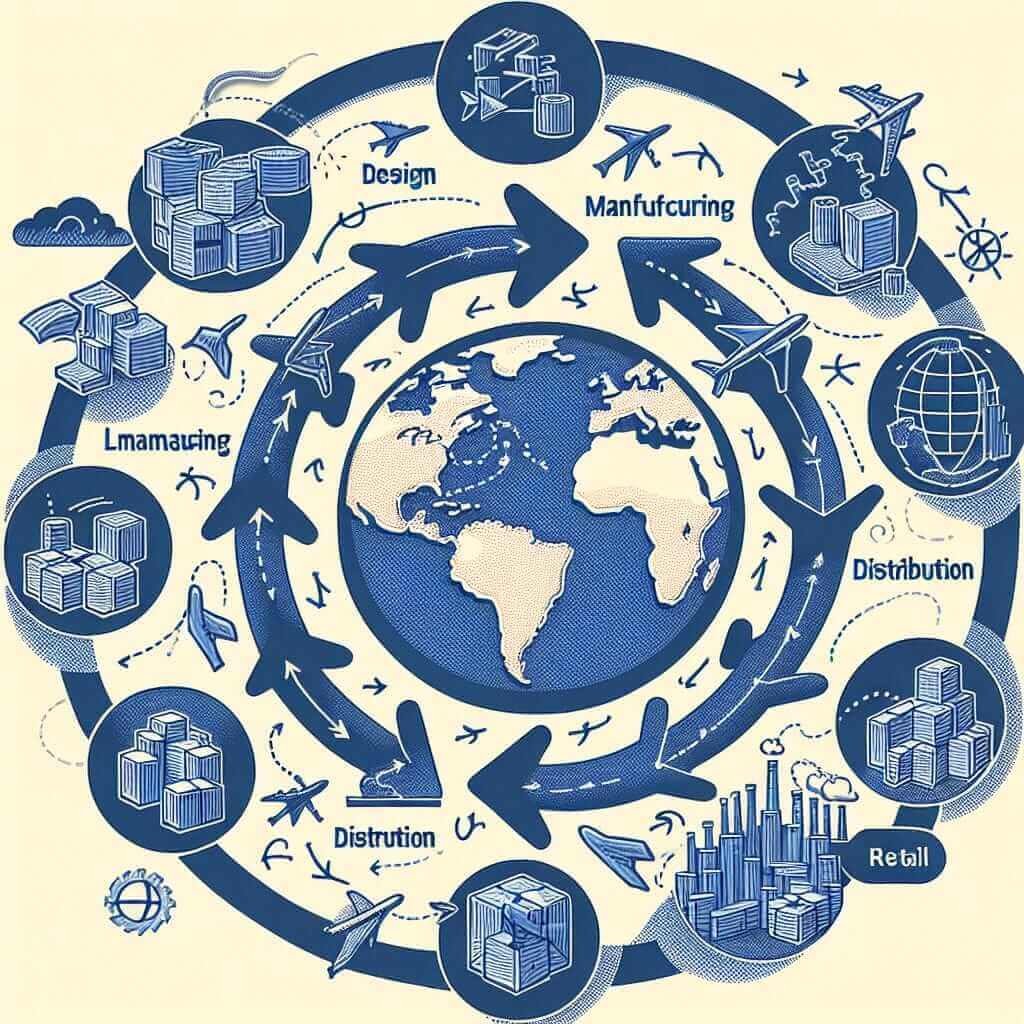Globalization, with its far-reaching effects on economies and societies worldwide, has become a hot topic in IELTS Writing Task 2. Specifically, the impact of globalization on employment opportunities is a frequently asked question, prompting candidates to consider both its advantages and disadvantages. This essay will delve into this complex issue, providing a sample answer to a typical IELTS question, along with valuable insights and vocabulary to help you excel in your exam.
Sample IELTS Writing Task 2 Question
To what extent do you agree or disagree with the following statement? Globalization has led to more employment opportunities overall.
Analysis of the Question
This question requires you to present a clear stance on whether globalization has created more jobs globally. You need to weigh the benefits, such as increased trade and foreign investment, against the drawbacks, like job displacement in developed countries. A balanced essay will acknowledge both sides of the argument while supporting your opinion with relevant examples.
Sample Essay
Globalization, the increasing interconnectedness of nations, has profoundly impacted employment opportunities worldwide. While some argue that it has led to a net increase in jobs, others contend that it has resulted in job losses and exploitation. This essay will argue that although globalization presents both opportunities and challenges, its overall impact on employment has been positive.
One of the primary ways globalization boosts employment is by fostering international trade. As countries lower trade barriers, businesses can access larger markets, leading to increased production and a surge in demand for labor. For instance, multinational corporations setting up factories in developing nations often create numerous manufacturing jobs, boosting local economies. Moreover, the rise of global value chains, where different stages of production are located in different countries, has created new employment opportunities in sectors such as logistics, transportation, and communication.

However, it is essential to acknowledge that globalization can also lead to job displacement, particularly in developed countries. As companies seek lower production costs, manufacturing jobs often shift to developing nations with cheaper labor. This can result in unemployment and social unrest in developed economies. Nevertheless, it is crucial to note that globalization also creates new job opportunities in these countries, primarily in knowledge-based industries like technology, finance, and research and development.
In conclusion, while globalization can cause job displacement in certain sectors, it undeniably generates more employment opportunities globally. The expansion of international trade, the emergence of global value chains, and the growth of knowledge-based industries all contribute to a net increase in jobs. To mitigate the negative consequences of globalization, governments and policymakers should invest in education and training programs to equip workers with the skills needed for the evolving job market. [Word count: 289]
Writing Tips
- Structure: Use a clear structure with an introduction, body paragraphs, and a conclusion.
- Vocabulary: Use topic-specific vocabulary related to globalization and employment (e.g., outsourcing, offshoring, skilled labor).
- Examples: Support your arguments with real-world examples to enhance credibility.
- Grammar and Accuracy: Pay close attention to grammar and spelling to avoid losing marks.
Useful Vocabulary
- Globalization (n.) /ˌɡloʊbələˈzeɪʃən/: The process of interaction and integration among people, companies, and governments worldwide.
- Outsourcing (n.) /ˈaʊtsɔːrsɪŋ/: Obtaining goods or services from an outside supplier.
- Offshoring (n.) /ˈɔːfʃɔːrɪŋ/: Relocating a business process to a foreign country.
- Skilled labor (n.) /skɪld ˈleɪbər/: Workers with specialized knowledge and training.
- Free trade (n.) /friː treɪd/: International trade left to its natural course without tariffs or other restrictions.
- Multinational corporation (n.) /ˌmʌltiˈnæʃənəl ˌkɔːrpəˈreɪʃən/: A company operating in multiple countries.
- Job displacement (n.) /dʒɒb dɪsˈpleɪsmənt/: When workers lose their jobs due to factors like technological advancements or outsourcing.
- Knowledge-based economy (n.) /ˈnɒlɪdʒ beɪst ɪˈkɒnəmi/: An economy where growth is driven by the production and dissemination of knowledge.
- Emerging markets (n.) /ɪˈmɜːrdʒɪŋ ˈmɑːrkɪts/: Developing economies with increasing purchasing power.
- Comparative advantage (n.) /kəmˈpærətɪv ədˈvæntɪdʒ/: The ability of a country to produce a good or service at a lower opportunity cost than another.
Conclusion
The impact of globalization on employment opportunities is a multifaceted issue. By understanding the complexities, using appropriate vocabulary, and providing compelling arguments and examples, you can confidently tackle this topic in your IELTS Writing Task 2. Remember to stay updated on current events and global economic trends to provide relevant and insightful responses.